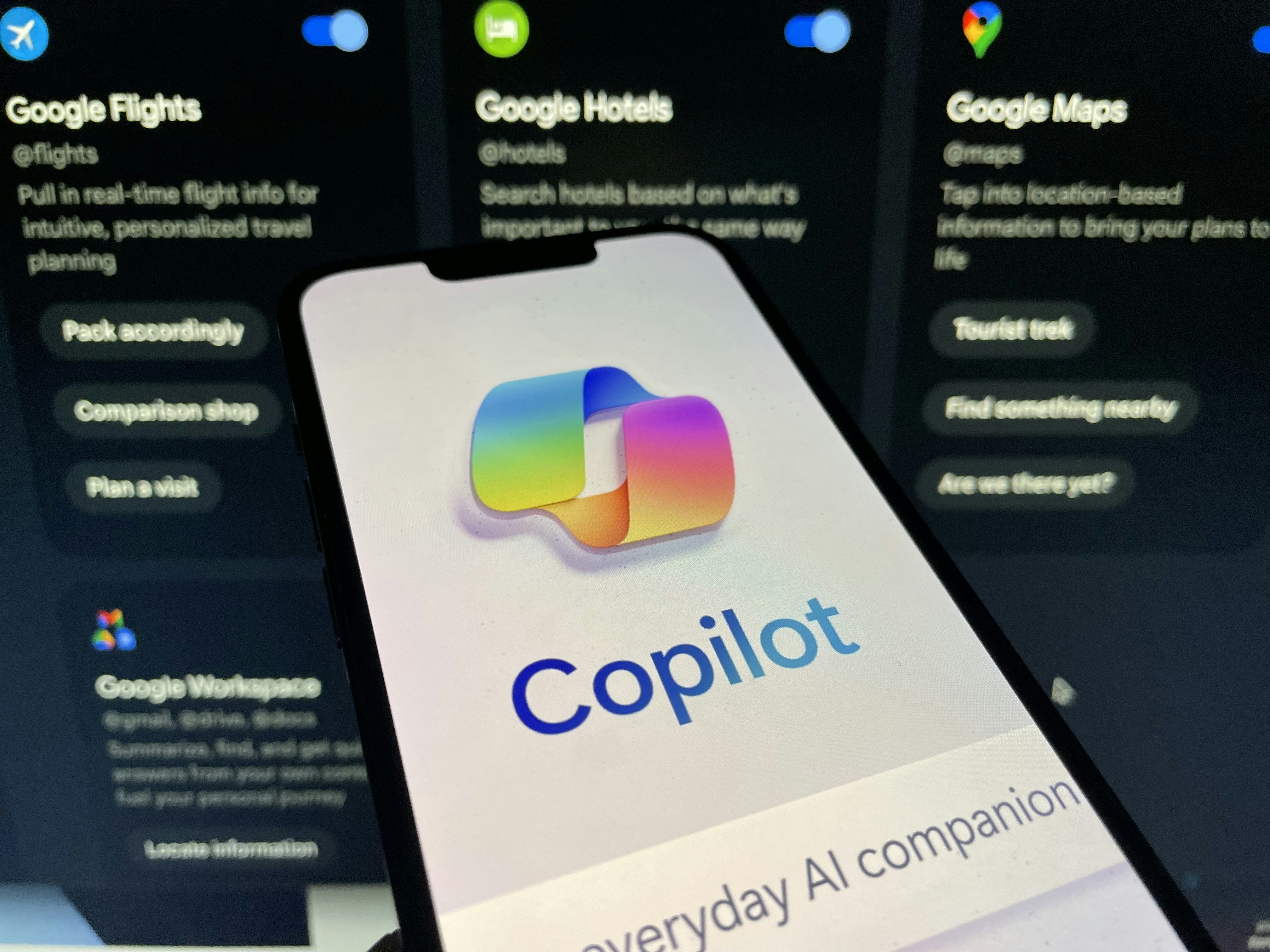Introduction to AI in Parenting
In recent years, artificial intelligence (AI) has begun to permeate various aspects of our lives, and parenting is no exception. The integration of smart technology into family life is transforming how parents manage responsibilities and support their children’s development. AI-powered tools offer innovative solutions that cater to the unique challenges faced by modern families. One of the most significant impacts of AI in parenting is the enhancement of communication within families. AI-driven applications can provide platforms for shared scheduling, allowing parents to coordinate activities effortlessly while keeping everyone informed. Furthermore, these technological solutions can facilitate real-time updates, ensuring that caregivers are always on the same page.
Moreover, the role of AI extends to providing educational resources tailored to individual children’s needs. AI algorithms analyze a child’s learning patterns and preferences, enabling the creation of customized learning experiences. This personalized approach not only enhances academic development but also nurtures critical thinking and problem-solving skills. The versatility of AI tools in educational settings strengthens the bond between parents and children as they work together to navigate learning journeys.
Additionally, AI technology facilitates better time management for parents. Smart home devices can help streamline day-to-day tasks, from setting reminders for important events to automating household chores. By reducing the burden of mundane responsibilities, AI allows parents to focus more on spending quality time with their children, fostering stronger familial connections. Furthermore, AI can assist in monitoring children’s online activities, providing insights into their behaviors and interests, which can prove invaluable during parent-child discussions about digital safety.
As families continue to embrace these advancements, the intersection of AI and parenting becomes increasingly evident, illustrating how smart technology can create a more efficient and supportive environment for both parents and children.
The Rise of Smart Devices in Homes
The emergence of smart devices has significantly transformed family life, providing modern households with new levels of convenience and efficiency. Over recent years, an increasing number of families have incorporated smart speakers, monitors, and wearable technologies into their daily routines. These devices not only streamline household tasks but also enhance the overall parenting experience.
Smart speakers, for instance, have become integral tools in many homes, facilitating voice-controlled assistance that helps parents manage their everyday activities. These interconnected devices allow parents to set reminders for appointments, add items to shopping lists, and even play educational content for children, thereby creating an enriching environment. By simply using voice commands, families can find information rapidly, making time management more efficient.
In addition to speakers, smart monitors have gained traction as valuable tools for parents. These devices enable caregivers to observe and interact with their children remotely, using video feeds and sensor technologies. Parents can monitor their little ones’ sleep patterns or even check in during playtime, easing the worry often associated with childcare. Furthermore, these monitors can provide crucial insights into children’s health, alerting parents to any irregularities that may require further attention.
Wearable technology has also played a pivotal role in the rise of smart devices in family settings. Smartwatches designed for children offer features such as fitness tracking, GPS location, and communication capabilities, empowering parents to keep tabs on their children’s well-being and whereabouts. This level of connectivity not only enhances safety but also encourages healthier habits among younger family members.
As these smart devices become more prevalent, it is clear that they play a significant role in shaping modern parenting, facilitating a seamless blend of technology and daily life that fosters better family organization and engagement.
AI Tools for Education and Learning
The integration of artificial intelligence in education has revolutionized the way children learn, providing personalized solutions that cater to individual learning styles and paces. AI-driven educational tools and platforms harness vast amounts of data to develop customized learning experiences, ensuring that each child can engage with the material in a way that best suits their unique needs. This adaptability not only enhances understanding but also boosts retention of the information being taught.
Explore Our Powerful Magic Spells
Choose a spell that suits your needs and experience real results today!
One of the significant advantages of AI educational tools is their ability to continuously assess student performance. By analyzing data on a child’s interactions with learning material, these systems can identify strengths and areas requiring improvement. Consequently, they can adjust the content and the difficulty level accordingly, fostering an environment where children can progress at their own pace. Such tailored educational experiences often lead to greater motivation and an increased desire to learn.
For parents utilizing these AI tools, the benefits extend beyond mere academic improvement. Platforms such as virtual tutors and adaptive learning technologies offer supplementary learning opportunities that can be seamlessly integrated into homeschooling environments. These resources provide structured educational support, which is vital, particularly for those who may feel overwhelmed by homeschooling responsibilities. Moreover, many AI-powered educational apps include gamification elements, making learning more engaging and enjoyable for children.
In addition to supporting individualized learning paths, AI tools facilitate effective communication between parents and educators. By providing real-time data on a child’s progress, parents can engage in meaningful discussions regarding educational strategies and future goals with teachers. This collaborative approach not only enhances the child’s learning experience but also creates a supportive network that encourages academic success. The emergence of AI in education is undoubtedly crafting a new terrain for learning, promising both innovation and effectiveness in fostering knowledge acquisition.
Enhanced Communication with AI
In today’s digital age, artificial intelligence (AI) is playing a crucial role in enhancing communication within families. With the advent of smart technology, parents can now leverage various AI applications that facilitate seamless connections with their children. These tools not only keep parents informed about their children’s activities but also encourage open dialogues, thereby nurturing healthy family relationships.
One significant development in this area is the rise of virtual assistants, such as Amazon’s Alexa or Google Assistant. These devices serve as intermediaries that foster interactions between family members. For instance, parents can use voice commands to check in on their child’s schedule, set reminders for important events, or even share daily updates. This instant access to information aids in maintaining a cohesive family environment where members feel more connected and informed.
Moreover, various communication apps powered by AI are designed specifically to bridge the gap between parents and children. These applications often include features such as real-time location tracking, activity monitoring, and messaging capabilities. They allow parents to oversee their child’s online activities safely while also promoting discussions about responsible internet usage. The ability for parents to monitor their children’s digital presence encourages conversations that support understanding and trust.
Additionally, AI helps in addressing the diverse ways children communicate today. With the integration of chatbots and interactive platforms, families can engage in meaningful dialogues, even when physically apart. For example, custom AI chatbots can be programmed to ask children about their day or engage them in educational activities. This personalized approach not only keeps the lines of communication open but also helps bolster emotional connections within the family unit.
By utilizing AI technology effectively, families can overcome common barriers to communication, leading to stronger bonds and improved understanding among members. The tools available today provide an excellent foundation for enhancing familial interactions, ensuring that parents and children remain closely connected in an increasingly digital world.
Safety and Security Features
The integration of artificial intelligence in parenting tools has significantly transformed the way families approach safety and security. These advancements allow parents to monitor their children’s activities effectively while promoting a sense of independence. AI-powered monitoring applications, for instance, enable real-time tracking of children’s locations, helping parents maintain peace of mind without infringing on their child’s autonomy. These applications often come equipped with GPS tracking functionality, ensuring that parents can locate their children with precision, whether they are walking home from school or playing at a nearby park.
Additionally, AI-driven solutions extend beyond just location monitoring. Home security systems augmented with AI technology can analyze patterns of behavior and detect anomalies, providing alerts when unusual activities occur. This proactive approach enhances safety, allowing families to feel secure in their homes. For instance, smart cameras equipped with facial recognition can differentiate between familiar individuals and strangers, notifying parents about potential security threats in real-time.
💰 Powerful Spells for Wealth & Prosperity
Attract money, success, and financial abundance with real magic spells that bring results fast.
Moreover, many AI-powered safety tools incorporate geofencing capabilities, allowing parents to set virtual boundaries. When a child crosses these predefined areas, the parent receives instant notifications, enabling immediate communication and action if necessary. This feature not only helps in enhancing security but also encourages children to explore their surroundings within safe limits.
Furthermore, these innovations foster open dialogues between parents and children regarding safety. By involving children in discussions about the technologies in use, parents can educate them on personal safety measures while empowering their children to make informed choices. As AI continues to evolve, its contributions to enhancing child safety through smart technology will likely provide families with an essential balance between protection and independence.
Balancing Screen Time with AI Insights
In today’s technology-driven world, managing screen time for children presents a unique set of challenges. With devices becoming increasingly integral to education and entertainment, parents often grapple with finding the right balance between productive and excessive screen use. This is where artificial intelligence (AI) parenting tools come into play, offering valuable insights that can help families navigate these complexities.
AI tools are designed to analyze children’s screen time patterns, providing parents with detailed reports on usage. These insights include the types of applications or content their children engage with, as well as the duration spent on each. By leveraging this data, parents can make informed decisions about their children’s screen time, thereby ensuring that technology serves as a beneficial tool rather than a source of distraction. For instance, AI can help identify periods when a child’s engagement with educational content spikes, suggesting that screen time can be enriched further in those areas, while also highlighting excessive use of recreational apps.
Moreover, AI-driven insights allow parents to set tailored screen time limits based on their child’s habits and developmental needs. Such personalized adjustments can be crucial in promoting a healthy relationship with technology. With features that alert parents when children exceed designated usage times or suggest alternative activities, these tools encourage a more holistic approach to family life. Ultimately, the goal is not to eliminate screen time but to enrich it with educational value while also promoting vital activities like outdoor play and family interaction.
By utilizing AI insights, families can foster an environment where technology enhances learning and growth. This balanced approach helps children develop healthy habits that align with their evolving needs in an ever-connected world.
Mental Health and Emotional Support
In the evolving landscape of parenting, AI-driven applications are emerging as vital tools for monitoring children’s mental health and emotional well-being. These smart technologies are designed to help parents identify and address the emotional signals displayed by their children. By utilizing machine learning algorithms, these applications can recognize patterns and changes in behavior, offering insights that may go unnoticed in a busy household. For instance, some apps can track mood fluctuations or screen time, delivering alerts when a child exhibits signs of distress or anxiety.
Moreover, AI applications can provide parents with invaluable resources to foster healthy emotional development. These platforms often include a repository of articles, videos, and interactive content focusing on mental health strategies and coping mechanisms tailored for children. By equipping parents with knowledge and tools, these resources empower them to approach sensitive conversations about mental health with confidence. Parents are encouraged to engage their children in discussions about feelings, enabling open communication that is crucial for emotional support.
These technologies also facilitate the creation of supportive environments where children feel safe expressing their emotions. Some AI tools feature guided journaling prompts, relaxation exercises, or mood-check-ins designed to encourage self-reflection and emotional regulation. This proactive approach not only aids in the immediate recognition of emotional distress but also instills lifelong habits of emotional intelligence and awareness.
As families navigate the complexities of modern life, integrating AI-driven mental health tools can play a pivotal role in enhancing emotional well-being. These applications serve not only to track and monitor mental health but also to promote healthy dialogues around emotional issues, thereby strengthening the familial bond and supporting children’s growth into emotionally resilient individuals.
The Ethical Considerations of AI in Parenting
The integration of Artificial Intelligence (AI) into parenting has generated a myriad of ethical considerations that warrant careful examination. One of the primary concerns revolves around privacy and data security. AI parenting tools often rely on vast amounts of personal data to function optimally, which raises questions about how this sensitive information is collected, stored, and utilized. Parents may unknowingly expose their families to potential breaches of privacy, leading to unauthorized access to personal data. This risk necessitates transparent policies from technology providers to ensure that families are protected from potential misuse of their information.
Additionally, there is an increasing worry regarding the impact of AI on the parent-child relationship. An over-reliance on technology to monitor or guide parenting decisions could lead to diminished human interaction, potentially stunting emotional development in children. The question arises whether AI can fulfill the emotional and psychological needs of children, which are typically addressed through human connection. Relying heavily on smart tech might inadvertently create a barrier between parents and their children, contradicting the goal of fostering strong familial bonds.
Furthermore, ethical dilemmas about the decision-making capabilities of AI in sensitive parenting scenarios must be considered. For instance, questions regarding accountability arise when AI tools make erroneous suggestions or decisions that impact a child’s well-being. This calls for clear guidelines on the limits of AI intervention in parenting, ensuring that it serves as a support tool rather than a decision-maker. Balancing the advantages of AI, such as personalized learning experiences and efficient scheduling, against these ethical concerns is essential for a healthy integration of technology into family life.
The Future of AI Parenting Tools
The landscape of parenting is undergoing a profound transformation due to the rapid advancement of artificial intelligence (AI). As we look towards the future of AI parenting tools, several emerging trends and technologies stand to redefine the family dynamic. Innovative solutions, such as advanced monitoring systems, predictive analytics, and personalized educational platforms, are poised to enhance parental capabilities and address the diverse needs of children.
One significant trend is the use of AI in child development assessments. Smart devices equipped with AI algorithms can analyze children’s behavior and learning patterns, allowing parents to gain a deeper understanding of their child’s development trajectory. These insights can inform decision-making processes regarding educational resources and developmental milestones. Moreover, as technology becomes more integrated into our daily lives, parents can expect AI to provide tailored recommendations that cater to their unique family circumstances, fostering an inclusive approach to parenting.
Advancements in natural language processing (NLP) will further facilitate interaction between parents, children, and AI tools. We can anticipate the emergence of AI-driven virtual assistants that can engage with children, answering questions in real-time and nurturing interactive learning experiences. This evolution will not only benefit children’s cognitive development but also alleviate some of the burdens that parents face in juggling educational responsibilities amidst their busy lives.
As AI progresses, applications focusing on emotional intelligence and mental well-being will become more prevalent. Future AI parenting tools may include features that help monitor a child’s emotional state and offer strategies to parents on addressing potential challenges. Such tools will likely provide significant support in nurturing a child’s emotional health, which is essential in modern parenting.
In conclusion, the future of AI parenting tools is bright, offering numerous opportunities for improving family life. As technology continues to evolve, parents will embrace these advanced AI solutions to support their parenting journey, creating a more connected and enriched family environment.





